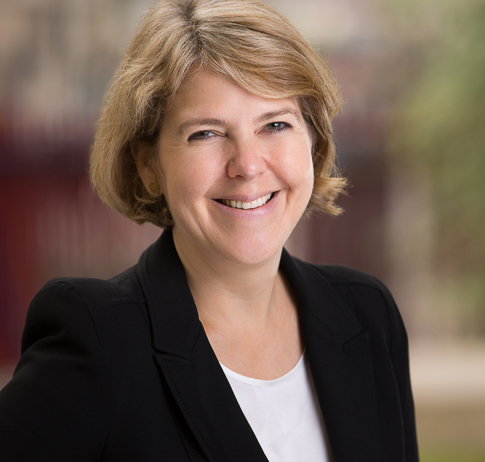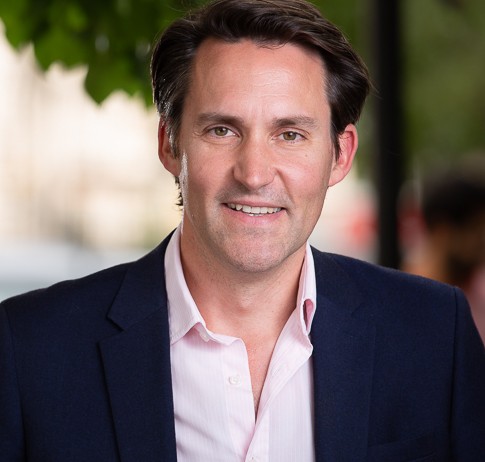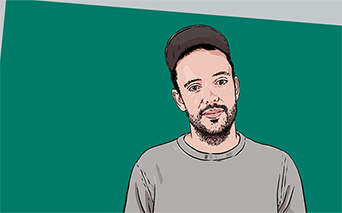Article
Defining moments interview series: Harriet Green OBE, global business leader and former CEO of IBM Asia Pacific
2 July 2021 | Applicable law: England and Wales
Harriet Green OBE. Why Harriet has had a change of heart about diversity quotas.
It can be tricky to make meaningful connections via Zoom, but Harriet Green’s years of honing her powers of persuasion have meant that, even remotely, she’s determined, persuasive and charismatic, answering every question with a broad and open smile. It’s easy to see why executives at the world’s oldest travel company were happy to embrace her radical business transformation plan.

The 59-year-old credits her single-mindedness, at least partly, to a childhood tragedy. At the age of 14 her father died from brain cancer, having been diagnosed when she was 11. “I’ve had many advantages,” she is careful to say. “I’ve had a great education, I went to a great local school, and my mum is very much alive and kicking and is a very strong individual. But our childhood was in part defined by my father’s brain cancer.”
Growing up in “the middle of nowhereville” in Gloucestershire, Green was adamant that she was never going to marry a young farmer (“though actually none of them asked me”). But, she says: “I just felt always a need to express an opinion that was different from those in my village and those in my class at school, and I’m quite privileged to have the strength of character and strength of voice defined by that childhood.” Green adds, simply: “I’ve always wanted, should my father come back, to be the best person I can be.”
After studying history at King’s College, London, Green worked in the electronics industry, becoming CEO of Premier Farnell (later bought by multinational IT solutions company Avnet) and transforming the Leeds-based catalogue business into a successful electronics and engineering community. In 2010, she received an OBE from the Queen for her services to electronics.
In 2011, amid headlines about how sick the travel company Thomas Cook was, she contacted the chairman and told him he needed her. “It had about 17 weeks to live but had many healthy elements to the business including its gross margins,” Green says. “I saw many opportunities in how we could address a wider market, so we were able to do a number of growth-generating initiatives very quickly.”
I’ve always wanted, should my father come back, to be the best person I can be.
Using expertise from the likes of management consultancy McKinsey & Company, Green managed to turn the company around, taking its stock market value from £148m to just below £2bn. When she was let go, the value dropped by £400m. “The learning there,” she says, simply, “is maybe if I had not made it seem so easy, people would have seen how important the continued transformation was. I look back upon what happened to Thomas Cook five years after I left with real sadness.”
The defining time at Thomas Cook saw Green head to IBM to found and lead the IBM start-up Watson Internet of Things, adding the artificial intelligence (AI) portfolios. “I wanted to be around people who had successfully completed digital transformations who weren’t from an ‘old world’,” she explains. Here, as Chair and CEO of IBM Asia Pacific, Green led some of the company’s highest priority and most strategic business initiatives and drove the inclusion and diversity agenda.
More recently, she has been dedicating the majority of her time to what she calls purposeful work. Last year she became the Executive Chair of Mission Beyond, a community of purpose-led transformational leaders from different sectors, to address issues such as social mobility, inclusion, wellbeing and affordable and clean energy. She says her current work – creating a product and a unifying platform for the social mobility ecosystem to digitally connect young people from all backgrounds to jobs, which is at the minimum viable product stage – is “defining” for her and teaching her numerous new skills. “I’ve been running businesses since I was 29 but to get involved from the detailed [project management software] Trello end through to influencing heavy hitting coalitions is very exciting,” Green says.
For someone who’s so outspoken and passionate about diversity, Green has said in the past that she’s opposed to quotas for women. “My view always was that it’s hard enough being a female board member and a CEO, having the confidence to make good inputs, without people saying ‘she’s just part of a quota’,” she explains. “I felt until recently that we were making progress.”
But Green has since had a change of heart and isn’t afraid to admit it: “What I’ve said publicly is that if we reached a crisis level, I would rethink. From everything I am seeing right now – and if you read the World Economic Forum Global Gender Gap report [in March 2021] which concludes Covid-19 has set us back as women 100 years – then I have to change my thinking. This vortex of change has affected women to a much greater level than men and I really think that it’s time for a relook at new solutions. I really don’t want a world where it’s only the white males from the same backgrounds who make the progress.”
People in tech also have a duty to step up when it comes to diversity, she says, especially when it comes to eliminating coding bias: “Every company that creates or uses AI has to have a clear charter. What are your ethics? What are your principles? Are you always asking permission as you anonymise our information, share images, etc, particularly in the age of auto populate. There also has to be very clear guidance to prevent the unconscious bias in coding.”
That regulation, says Green, needs “clear ethics, policies, clear audit and clear explanations so that mere mortals like you and I can understand why we didn’t, for example, get permission to make a claim on the insurance for our car.” It’s all about education for all, she believes, “and also about what that means for the human and life skills we need in a world where every single job will be affected by AI and machine learning”.
Having worked across four continents in many leadership roles, Green is candid about her achievements. “My leadership role is defined by driving diversity, inclusion, progression and retention for my teams. Even in 2006, as CEO for Premier Farnell, our strategy was based on people, planet and profits long before the new EDI and ESG targets,” she says, adding: “In every role [I’ve taken on] and [every] complex problem I have been asked to solve, on completion the organisation is better shaped than when I took the role on.”
Ultimately, she says: “If you can make an impact every day on a number of people’s lives, so they don’t have to make the mistakes that I made, then that’s a good thing and I’m totally committed to that.”
First published on the FT.com and produced in partnership with the Financial Times Commercial department.

Defining moments
What does it take to be successful and how do we navigate key moments in our lives? We explore stories of success with the FT.
Defining moments interview series





